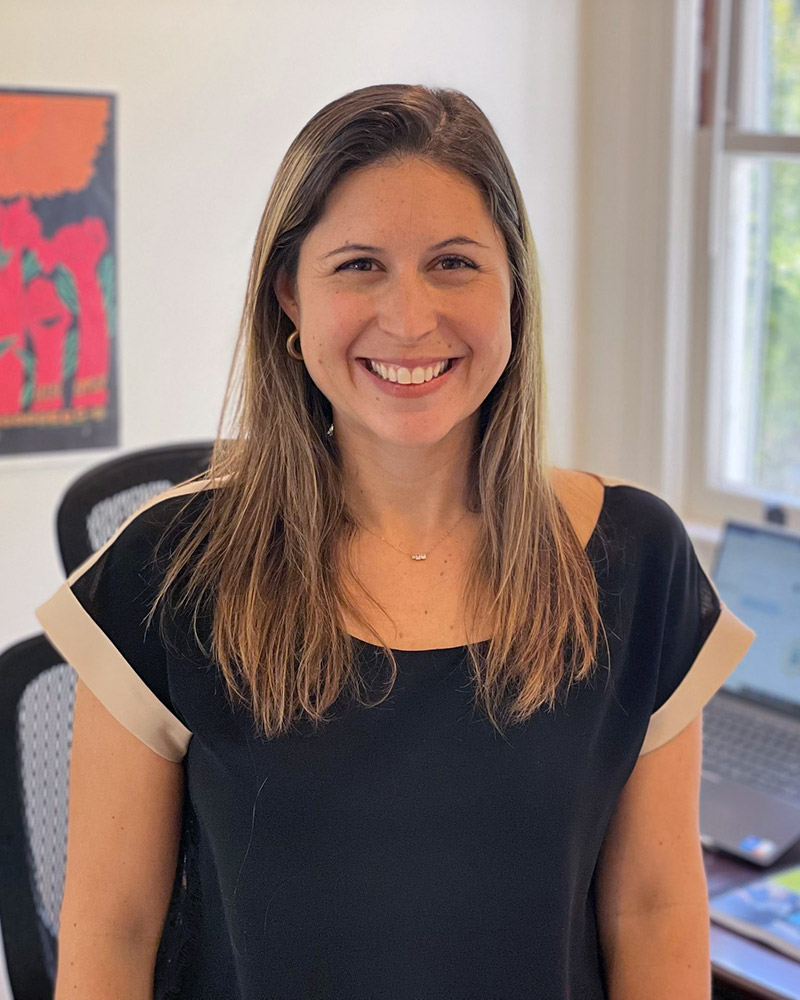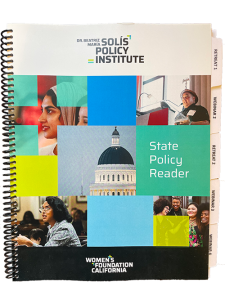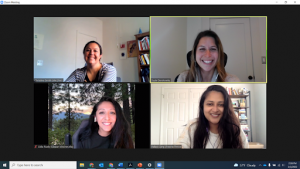
A Day in the Life
Suzanne joined the Metropolitan Equity Team at Public Advocates as a Staff Attorney in late 2021. She works alongside community partners to advocate for housing justice, renters’ rights, and equitable land use policies. Previously, she served as Housing Policy Attorney for Legal Aid of Sonoma County, where she led campaigns to support community power building, and meaningful policy change. While there, Suzanne helped bring about a strong eviction moratorium and a $1.4 million right to counsel pilot program. Suzanne graduated cum laude from UC Berkeley with a B.A. in Political Science and received her J.D. from UC Berkeley School of Law in 2017 with a Public Interest & Social Justice Certificate.
DAY ONE
Right now a significant part of my work is creating and disseminating tools that empower community members to raise their voices in shaping long-term local affordable housing action plans called Housing Elements.
Over the coming year, every city and county in the Bay Area is required to update their Housing Element. This is important because these plans must identify land where sufficient affordable housing can be built and commit to concrete actions to meet the housing needs of all economic segments of the community. These actions are designed to make sure that low-income families can find an affordable place to call home in every community.

Today I’m working on drafting text for the website that explains why community members and organizers should get involved in the Housing Element process. I want to convey how this advocacy can complement and advance housing justice campaigns that grassroots groups are already working on. Because these are long-term plans, the opportunity only comes up once every eight years. The law requires cities to consult with low-income people, people of color, people with disabilities, and others whose housing needs are not being met during the planning process. And if cities fail to take the actions identified in the Housing Element, advocates and state regulators can enforce these commitments.
DAY TWO
Today I am preparing to convene our next Bay Area Housing Element working group meeting. Through the working group, community organizers, housing lawyers, community land trusts, and affordable housing policy organizations are collaborating to make sure that all cities and counties in the region adopt Housing Elements that respond to the most pressing needs of low-income residents.
We have been working together to develop toolkits for community members across the region to advance their existing campaigns and priorities through the Housing Element process. The toolkits provide legal, policy, and data arguments and resources coupled with strategic messaging guidance and talking points.
As you may be starting to see – this work builds on Public Advocates’s legacy of advocating for fair housing and dismantling systemic racial discrimination. Because of a state bill Public Advocates sponsored in 2017, the Housing Element must also study housing inequality for people facing systemic barriers to opportunity and take affirmative steps to undo this inequality.
DAY THREE
During the Bay Area Housing Element working group meeting, we discuss the rollout of the toolkits on housingelementtools.org and how we might publicize them to a wider audience. Community partners share updates about active local Housing Element campaigns. It becomes clear that many jurisdictions are failing to conduct the assessment of fair housing (a summary of fair housing issues) before identifying responsive housing goals and actions. Analyzing local and regional fair housing issues is an essential step to informing and prioritizing goals and actions. The working group decides to collaborate on a template letter advocating for cities to conduct the assessment of fair housing first so the Housing Element centers racial equity.
DAY FOUR
I learn that Concord’s Raise the Roof coalition is using one of our toolkits to draft a letter advocating for the City of Concord to commit to passing rent control and just cause eviction protections in their Housing Element. In a meeting with staff from East Bay Housing Organizations (EBHO), one of the members of the coalition, I explain how Public Advocates can support their local campaign going forward, ensuring that comments from community groups are framed sharply under the legal requirements. I offer to help the coalition draft a public comment letter to the City and, if need be, a letter to the California Department of Housing and Community Development – the agency tasked with oversight and enforcement of Housing Element law.
 DAY FIVE
DAY FIVE
Today, I am shifting gears and participating, with the support of Public Advocates, in the first day of a three-day retreat for my fellowship with the Solís Policy Institute, a project of the Women’s Foundation of California. SPI is a state policy advocacy and leadership training fellowship that gives five teams of advocates the hands-on experience of running a bill through the state legislature – hopefully, from introduction all the way to the Governor’s desk. My team is co-sponsoring SB 1017 (Eggman), a bill (not co-sponsored by Public Advocates) that will strengthen eviction protections for survivors of domestic violence and other violent crime. I am excited about the opportunity to deepen my legislative advocacy skills and passionate about the policy goals of this bill. No one should lose their housing because of abuse.
In this retreat, we focus on preparing for upcoming policy committee hearings. SB 1017 has already been referred to the California Senate Judiciary Committee. We decide to create an action plan for meeting with committee staff about the bill language, meeting with all the sitting members of the committee, and conducting outreach for letters of support in the coming weeks. Our strategy is to lead with values and center the stories of survivors who would be impacted by this bill – individuals who were evicted and lost their housing because of the abuse they suffered due to gaps in current law. The day culminates in a mock hearing where I share my prepared testimony in support of the bill and answer rapid-fire questions from the “committee.”

This was an energizing week, I learned a lot. I am grateful to be doing this work, advocating for solutions to our housing crisis alongside those who are most impacted and building power for low-income communities of color. As a new Staff Attorney at Public Advocates, I am working with our community partners every day – to stem displacement, reverse segregation, and ensure that everyone has a safe, stable, affordable place to call home.